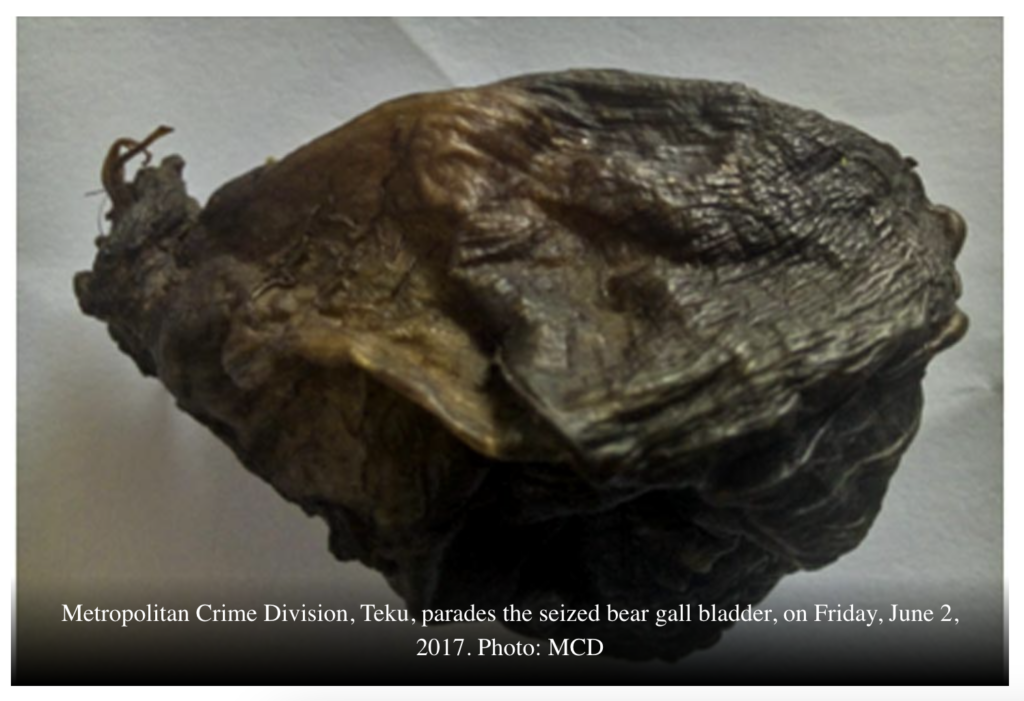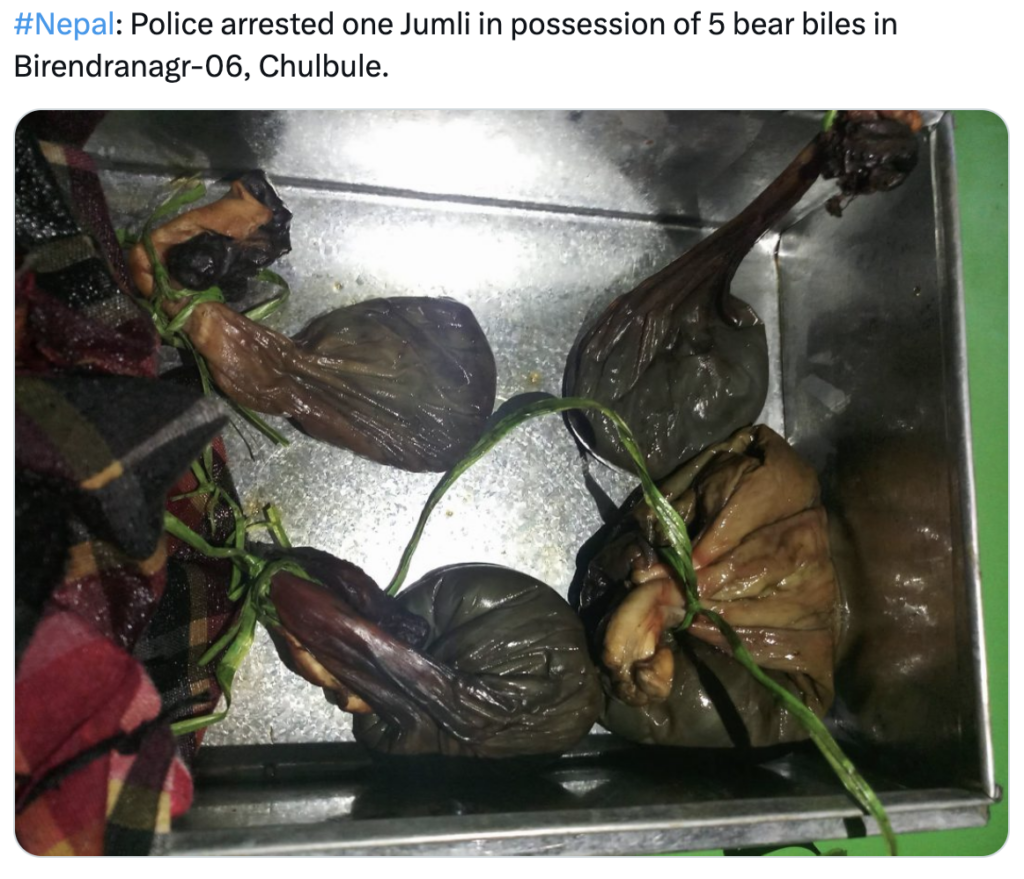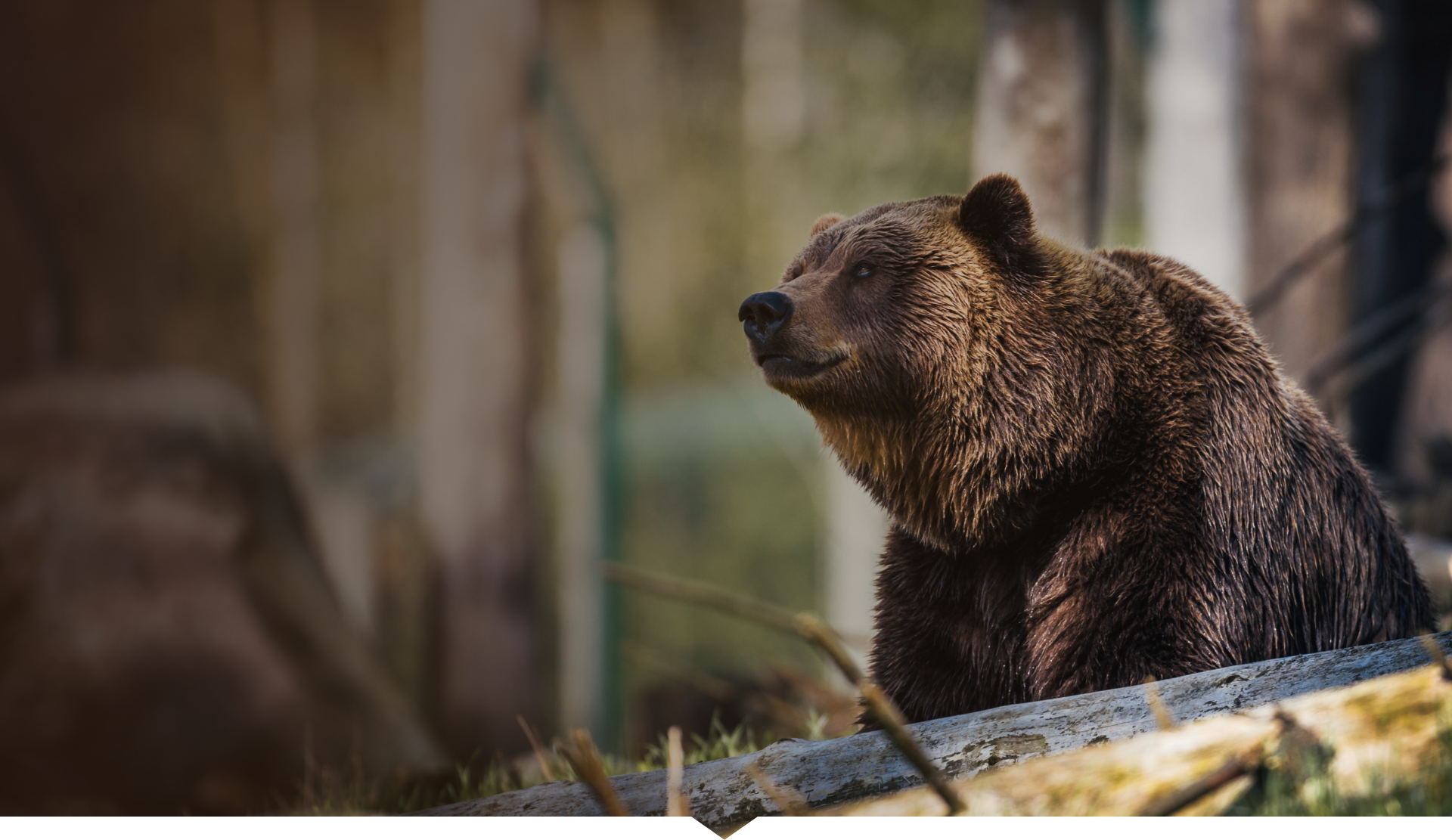Illegal wildlife trade is an emerging conservation threat to biodiversity. It is most prominent in developing countries with limited capacity to address illegal trade and regulate legal sustainable trade regulation. Bears are mainly traded for their gall bladder, which is used to treat different medical ailments linked to medicinal traditions. For example, to treat several diseases by the Shoka tribe in India. Or in Traditional Chinese Medicines where an extensive illegal trade into China fuels the use to treat gallstones, liver problems, fever, heart diseases, and eye irritation. But also in traditional Ayurveda and Tibetan medicinal traditions for instance. Following the rampant use of bear bile, and its clinically proven treatment of liver diseases due to the presence of ursodeoxycholic acid (ursodiol), commercial bear bile farming started in the 1980s. The vulnerable Asiatic black bears (Ursus thibetanus), known as Moon bears, Sun bears (Helarctos malayanus), and Brown bears are preferably farmed for bile. This is more prevalent in China where the use of bear bile from captive bears is legal (although, illegal to extract bear bile from wild bears).


Nepal falls between India and China, the two big consumers of traditional medicinals (e.g., Traditional Chinese Medicines in China; Ayurveda in India). Nepal also has consumers of traditional medicines including Amchi also called Tibetan medicinal practitioners, Nepali folk medicines, and Ayurveda; and have documented the historical use of bear parts as a cure for different ailments. There are reports that Nepal acts as a transit, sometimes a source, for bear trade. A recent study indicated Nepal as a transit for bear bile trade from India to China, while there is evidence of Nepal being both a transit and source country.
In this light, Bears in Mind supports this project bij Greenhood Nepal since 2023 to investigate the extent of the trade in Nepal and what measures need to be in place to ensure conservation of bears, as well as expose potential gaps.
A policy brief on bear trade based on data generated during the project, has been written by Greenhood Nepal. See below:
Photos (c) Greenhood Nepal


